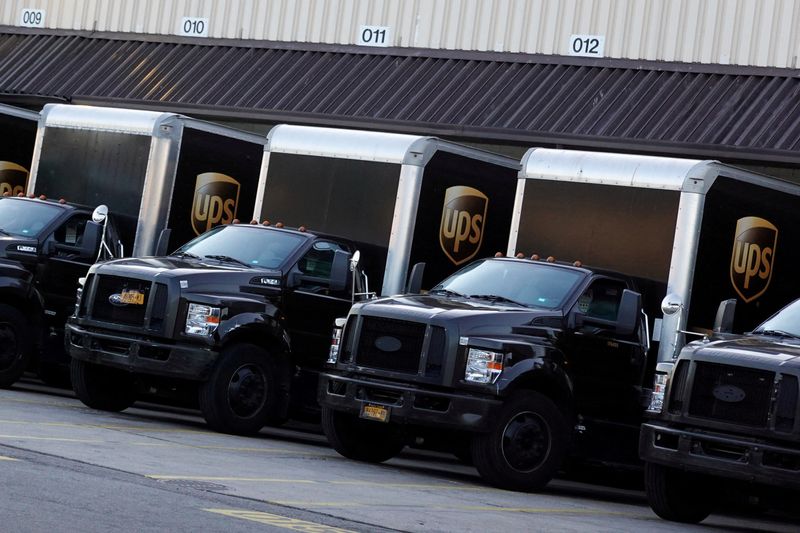By Lisa Baertlein and Priyamvada C
(Reuters) -United Parcel Service's new five-year deal with Teamsters-represented workers will cost less than the $30 billion that was outlined by the union, the delivery firm's chief financial officer said on Tuesday.
The contract covers about 340,000 UPS workers in the United States and will increase wage and benefit costs at a 3.3% compound annual growth rate over the life of the agreement.
"Our math was certainly lower than $30 billion," Chief Financial Officer Brian Newman told Reuters, reiterating what Chief Executive Officer Carol Tome said in a CNBC interview published earlier on Tuesday. Both declined to attach a dollar value to the new contract.
When the agreement expires in August 2028, the average UPS full-time driver will make about $170,000 annually in pay and benefits. Part-time union employees will be earning $25.75 per hour while receiving full healthcare and pension benefits.
The company, which has the top pay in its industry, said 46% of wage and benefit costs from the agreement would be booked this year.
While contract-related costs in the second half of 2023 are expected to be about $500 million more than UPS expected, the effect from the entire contract is "right in line" with company assumptions, Newman said.
Last month, the Atlanta-based company cut its full-year revenue and profitability targets, citing higher-than-expected labor costs as well as business lost during the tumultuous contract talks with the International Brotherhood of Teamsters.
During the second quarter, UPS customers shifted about 1 million packages per day to the U.S. Postal Service, FedEx (NYSE:FDX) and regional rivals.
UPS is on track to regain that business, said Newman, who expects the company to handle about the same number of packages this December as it did last year.
The Atlanta-based company is already squeezing costs to compensate for lower demand and higher labor costs.
It cut 2,500 management positions in the second quarter and has continued selective management layoffs in markets including Texas. In a separate move, it is offering early retirement to company pilots represented by the Independent Pilots Association.
The new Teamsters contract also gives UPS the option to automate some work. It has begun using RFID tracking chips that could eliminate the need for workers to scan the roughly 20 million packages per day that are loaded into its ubiquitous brown delivery trucks.

In addition, that technology could also reduce the frequency of parcels ending up on the wrong truck and requiring redelivery to 1 in 1,000 from about 1 in 400, Newman said.
UPS shares were down 2.3% in midday trading.